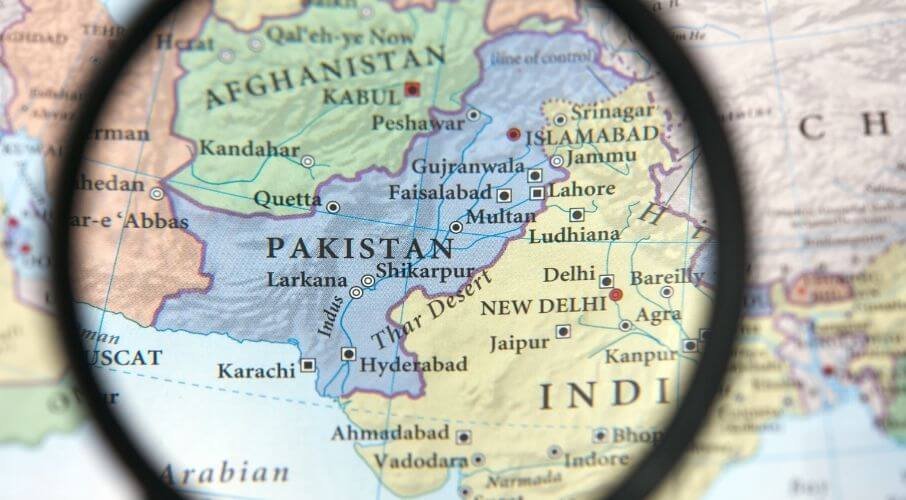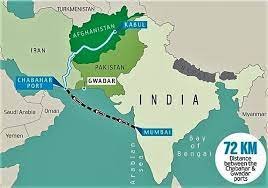India and Afghanistan share a deep-rooted historical relationship that spans centuries, characterized by cultural, economic, and strategic ties. This relationship has evolved, influenced by geopolitical shifts, internal dynamics within both countries, and regional power dynamics. Understanding the intricacies of India-Afghanistan relations requires delving into historical contexts, contemporary developments, and prospects.
Historical Context:
Ancient and Medieval Periods:
- India and Afghanistan have shared cultural and trade links dating back to ancient times. The region of present-day Afghanistan was historically part of the Indian subcontinent, and various Indian empires, such as the Mauryan and Gupta empires, extended their influence into Afghanistan.
- Buddhism spread from India to Afghanistan, leaving behind significant archaeological sites such as the Bamiyan Buddhas.
- The advent of Islam in the 7th century brought about significant cultural and religious changes, although trade and cultural exchanges between the two regions continued.
Mughal Era:
- During the Mughal period, Afghanistan served as a gateway to Central Asia. The Mughals maintained control over parts of Afghanistan, facilitating trade and cultural exchanges.
- Kabul became an important center of Mughal administration and commerce, further deepening ties between India and Afghanistan.
British Colonial Era:
- British colonial expansion into the Indian subcontinent and Central Asia significantly influenced the dynamics between India and Afghanistan.
- Afghanistan maintained a policy of strategic autonomy, often playing the British and Russian empires against each other in what came to be known as the “Great Game.”
- The Anglo-Afghan Wars of the 19th century shaped the region’s geopolitical landscape, with Afghanistan emerging as a buffer state between British India and the Russian Empire.
Modern Relations:
Post-Independence Period:
- India’s independence in 1947 and the subsequent partition led to the creation of Pakistan, altering the geopolitical dynamics of the region.
- Afghanistan was one of the first countries to recognize independent India and establish diplomatic relations.
- India and Afghanistan share strong cultural ties, with Bollywood movies and Indian music enjoying popularity in Afghanistan.
Cold War Dynamics:
- During the Cold War, Afghanistan’s strategic significance heightened, with both the Soviet Union and the United States vying for influence.
- India maintained a policy of non-alignment but supported the Afghan government’s sovereignty and independence during the Soviet intervention in the 1980s.
- India provided humanitarian aid to Afghan refugees and supported the anti-Taliban Northern Alliance.

Taliban Rule and Post-9/11:
- The rise of the Taliban in the 1990s and their control over Afghanistan posed challenges for India, given the Taliban’s close ties with Pakistan.
- India opposed the Taliban regime and supported efforts to oust them from power, aligning itself with the United States and other Western powers after the 9/11 attacks.
- Following the U.S.-led invasion of Afghanistan, India played a significant role in the country’s reconstruction efforts, focusing on infrastructure development, capacity-building, and education.
Strategic Partnership:
- The establishment of a strategic partnership between India and Afghanistan in 2011 marked a new phase in their relations, encompassing cooperation in various fields, including security, trade, development, and people-to-people exchanges.
- India committed significant aid and investment in Afghanistan, becoming one of its largest donors. Projects funded by India include the construction of roads, schools, hospitals, and the Afghan Parliament building in Kabul.
Cultural and Educational Exchanges:
- India’s cultural influence in Afghanistan remains strong, with Indian films, music, and television serials continuing to enjoy popularity.
- Educational exchanges between the two countries have increased, with Afghan students pursuing higher education in Indian universities through scholarships provided by the Indian government.
Security Cooperation:
- Both India and Afghanistan face common security challenges, including terrorism, extremism, and insurgency.
- India has been a target of Pakistan-based militant groups with links to the Taliban and other extremist organizations operating in Afghanistan.
- Despite security concerns, India has refrained from deploying troops in Afghanistan, focusing instead on capacity-building and providing training to Afghan security forces.

Economic Ties:
- Economic cooperation between India and Afghanistan has grown significantly in recent years, with trade volumes increasing and India emerging as one of Afghanistan’s top trading partners.
- India has invested in various sectors of the Afghan economy, including agriculture, mining, energy, and telecommunications.
- The Chabahar Port in Iran, developed with Indian assistance, serves as a crucial transit route for trade between India, Afghanistan, and other Central Asian countries, bypassing Pakistan.
Geopolitical Considerations:
Regional Dynamics:
- India’s engagement with Afghanistan is viewed through the lens of regional geopolitics, particularly its rivalry with Pakistan.
- Pakistan perceives Indian involvement in Afghanistan as a threat to its interests and has accused India of supporting insurgent groups operating in Pakistan’s Balochistan province.
- The China-Pakistan Economic Corridor (CPEC), a flagship project of China’s Belt and Road Initiative (BRI), has further complicated the regional dynamics, with India expressing concerns over Chinese influence in Pakistan-occupied Kashmir and its implications for regional stability.
U.S. Withdrawal and Taliban Resurgence:
- The withdrawal of U.S. and NATO forces from Afghanistan has raised concerns about the resurgence of the Taliban and the potential for instability in the region.
- India has expressed support for an Afghan-led and Afghan-owned peace process, emphasizing the need for inclusive governance and protection of the rights of all ethnic and religious groups, particularly women and minorities.
- The evolving situation in Afghanistan poses challenges to India’s strategic interests, including the threat of terrorism and the possibility of increased Pakistani influence in the country.
International Partnerships:
- India’s engagement with Afghanistan is not limited to bilateral cooperation but also involves coordination with other regional and international actors.
- India has participated in various multilateral forums and initiatives aimed at promoting stability, development, and connectivity in Afghanistan and the broader region.
- The Heart of Asia-Istanbul Process, initiated in 2011, provides a platform for regional dialogue and cooperation on issues related to Afghanistan’s security and development.
Future Prospects:
Security and Stability:
- Given its implications for regional peace and security, ensuring security and stability in Afghanistan remains a priority for India.
- India is likely to continue its support for Afghan security forces through training programs and capacity-building initiatives.

Economic Development:
- India’s economic engagement with Afghanistan is expected to grow further, with continued investment in infrastructure, energy, and connectivity projects.
- The completion of key infrastructure projects such as the Chabahar Port and the India-Afghanistan air corridor will enhance trade and connectivity between the two countries and the wider region.
Regional Connectivity:
- India’s vision for regional connectivity, as outlined in its “Neighborhood First” and “Act East” policies, includes enhancing connectivity with Afghanistan and other Central Asian countries.
- The development of transport corridors and energy pipelines will not only boost economic cooperation but also strengthen geopolitical linkages in the region.
Diplomatic Engagement:
- India will continue to engage diplomatically with Afghanistan and other stakeholders to support efforts for peace, reconciliation, and inclusive governance.
- Strengthening bilateral and multilateral partnerships will remain a key pillar of India’s approach to Afghanistan, reflecting its commitment to promoting peace and stability in the region.
India and Afghanistan share a multifaceted relationship characterized by historical ties, cultural affinities, and strategic cooperation. Despite challenges posed by geopolitical dynamics and security threats, both countries have sought to deepen their engagement across various domains, including security.
